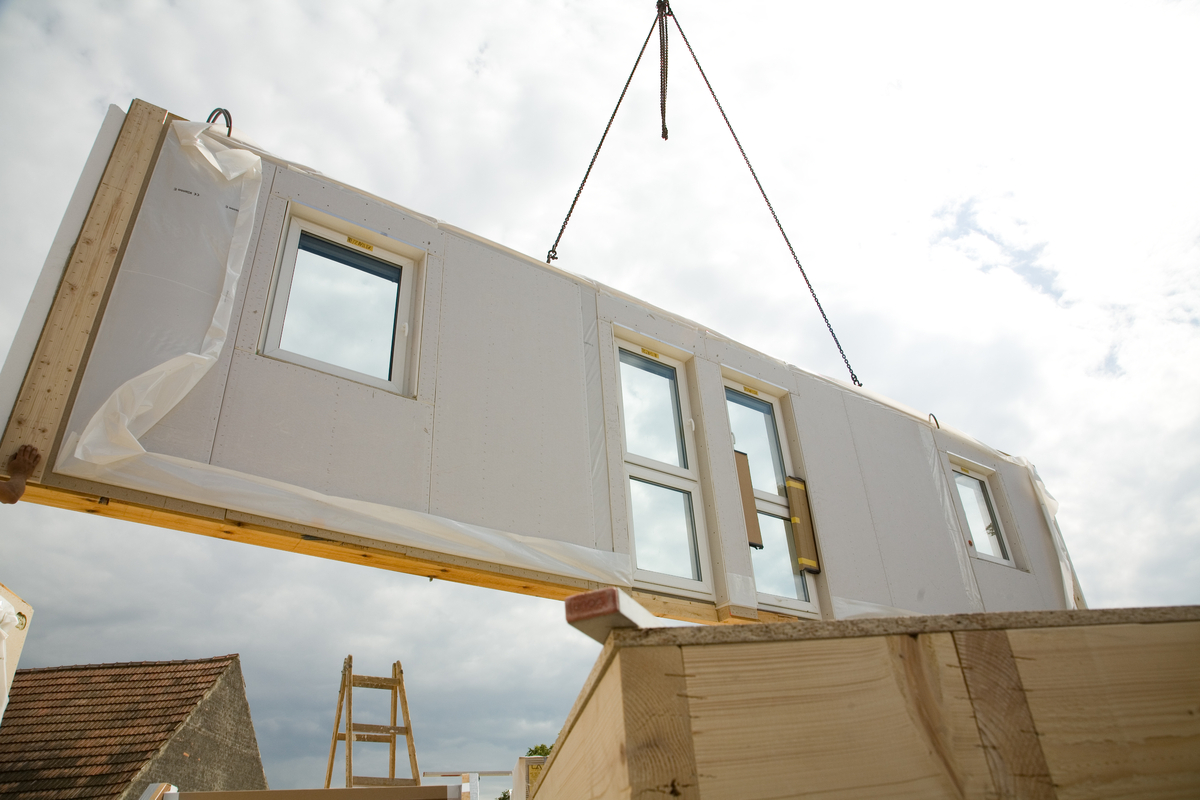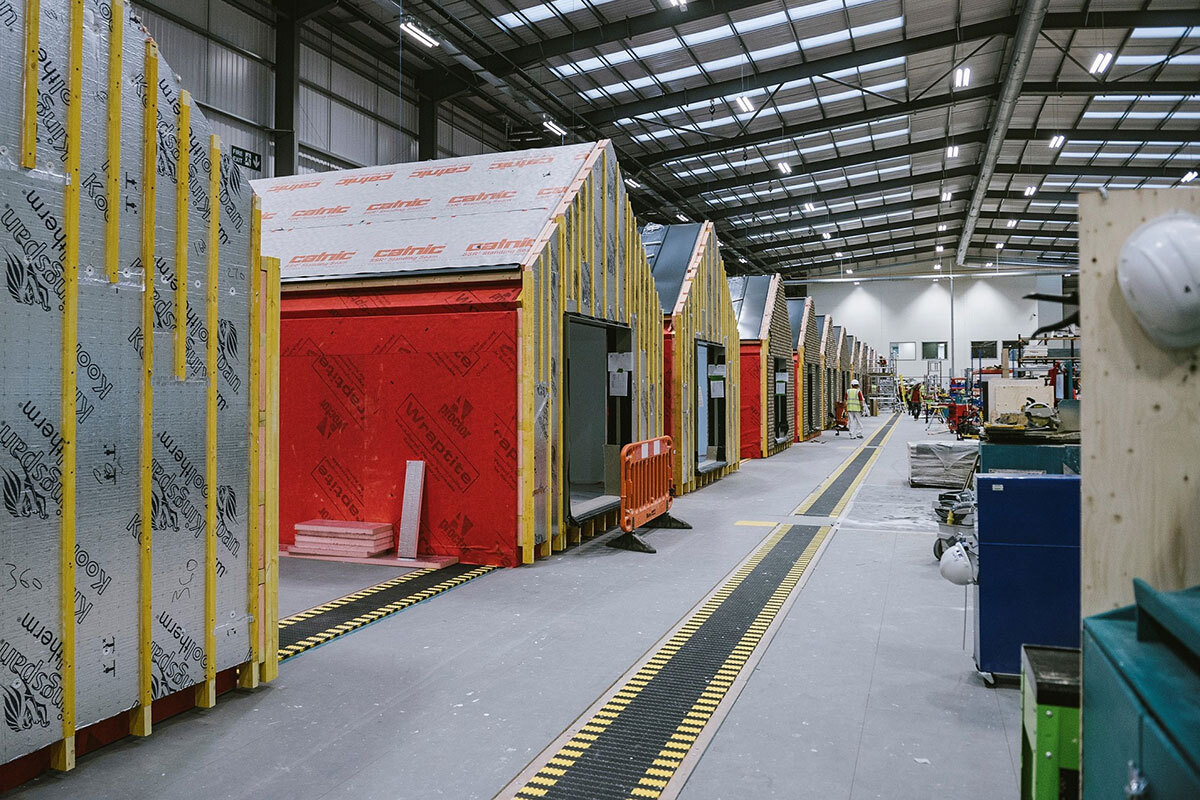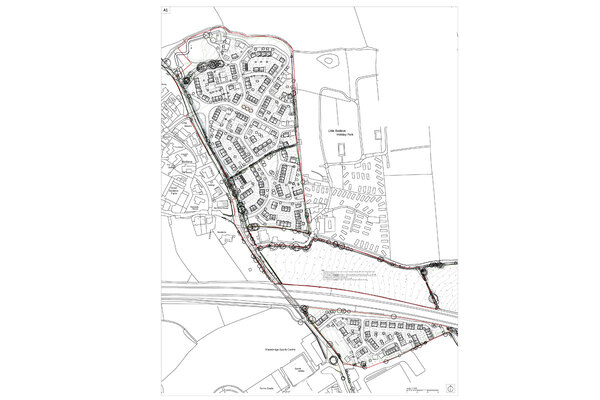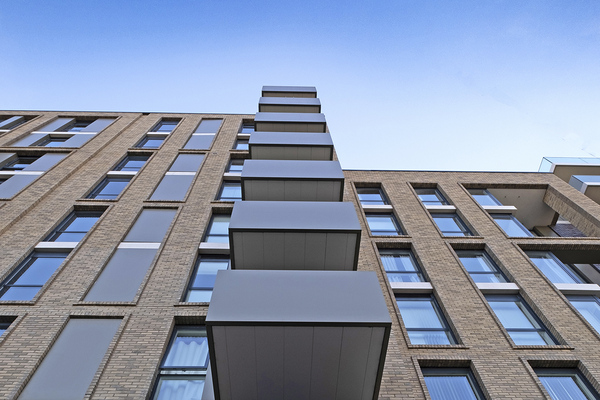You are viewing 1 of your 1 free articles

Richard Petty is head of UK Living at JLL, and Charlotte D’Avola is a partner at Penningtons Manches Cooper
Can MMC finally move from innovative to mainstream?
Progress around the use of modern methods of construction (MMC) has been tentative in much of the housing sector, with doubt around whether the funding market will accept such properties as loan security a key concern. But could all this be about to change? Richard Petty and Charlotte D’Avola discuss
MMC is a broad term used to describe numerous manufacturing and construction processes, including volumetric manufacturing and panellised systems. This generally involves component parts of a building being produced offsite (ie in a factory) and then assembled on site.
The most widespread use of MMC takes the form of timber-framing within buildings, which are produced offsite.
Numerous sector commentators have championed the virtues of MMC. The positives are that it can speed up the construction process (mitigating the joys of the British weather), increase quality and consistency, improve energy efficiency, and reduce the construction industry’s impact on the environment generally.
So, why is MMC still perceived by many as being a risky endeavour?
There are recognised questions around fire safety and perceived risks around the long-term performance and repairability of buildings incorporating MMC, simply because we don’t yet have long-term data for recently introduced technology.
But that doesn’t stop us adopting new technology in many other aspects of housing. Manufacturer/contractor solvency, and issues around the point at which ownership of products pass, are also topics of widespread discussion.
Of particular concern is the uncertainty around whether the funding market will accept MMC properties as loan security. Many finance directors will have asked for assurances on the end product and have been met with reservations.
Attitudes are evolving, though. Investors and funders are actively looking to improve their environmental, social and governance credentials, and there is a clear desire to support improvements in the way new housing is delivered. Although many funders seem to need convincing about the viability of MMC, some important recent developments provide reason for optimism.
In mid-2020, the National House Building Council (NHBC) launched NHBC Accepts, an accreditation scheme considering the quality, performance and durability of MMC products. NHBC Accepts accreditation provides comfort that the NHBC’s Buildmark warranty will be available (approved products are detailed on the NHBC’s website).
In addition, Homes England’s Affordable Homes Programme strategic partners are expected to deliver 25% of their programme using MMC, the clearest sign yet that government is committed to driving innovation. This is increasing pressure on the market to catch up with government policy.
The mainstream valuers in the sector, JLL and Savills, have for several years now been clear and consistent in their views that homes built using some form of MMC should not be valued any differently from those of conventional construction.
From a valuation perspective, there is no reason why MMC homes should cost any more to repair and maintain in the long term, nor in terms of the replacement of major components, and therefore deductions from gross income to assess the net income to be valued should not penalise MMC properties.
More importantly, that there is no immediately apparent reason why they cannot be let or sold in the owner-occupier market and therefore valued on the basis of MV-T.
There may still be legal restrictions, particularly in Section 106 agreements, that may prevent such treatment. But there is plenty of evidence from the retail mortgage market that buyers will acquire such homes and can get a mortgage secured on them.
Provided all the necessary technical due diligence has been done (and valuers have a well-trodden path in this regard) then funders should be able to lend with confidence, knowing ultimately that valuers are prepared to put their PI behind their opinions.
“By fully understanding the products involved, and the associated risks, MMC can be effectively incorporated into the development programmes and funding plans of registered providers”
There are a few, scattered examples of MMC homes being charged as small proportions of the security for loan facilities. Most have tended to be ‘under the radar’ for that reason.
But, in February this year, GreenSquareAccord reported having successfully charged a portfolio of offsite-manufactured, timber-framed properties to The Housing Finance Corporation subsidiary, Blend Funding. The portfolio is said to have included more than 100 homes constructed using MMC. This is believed to be a sector first at this scale.
Of course, not all MMC is built alike. Blend has accepted timber-framed properties, but we still have no definite assurance that other methods and products will be accepted. In our view, by fully understanding the products involved, and the associated risks, MMC can be effectively incorporated into the development programmes and funding plans of registered providers.
In a sector with a long and impressive record of innovating successfully, and recent proof of acceptability for loan security, we are optimistic that MMC will spring into the mainstream funding arena. Any funders who are prepared to support the market, with the benefit of appropriate due diligence, should be met with an open (offsite-constructed) door.
Richard Petty, head of UK Living, JLL; and Charlotte D’Avola, partner, Penningtons Manches Cooper
Sign up for our development and finance newsletter
Already have an account? Click here to manage your newsletters












